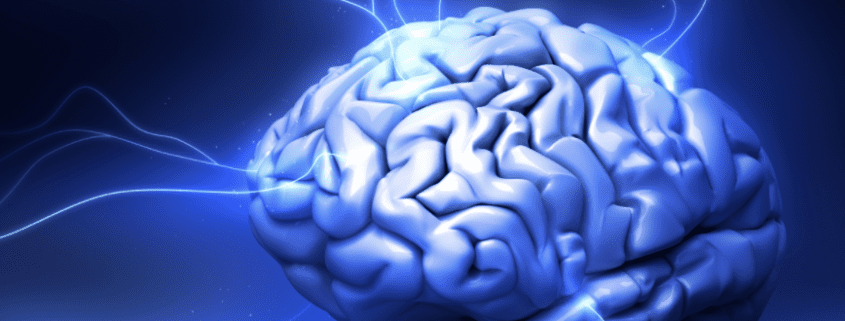
TMS vs. ECT
Transcranial Magnetic Stimulation (TMS) Vs. Electroconvulsive Therapy (ECT)
Depression is on the rise among Americans. (WHO,2020) According to the National Institute of Mental Health Disorders, part of the National Institutes of Health (NIH), “An estimated 26% of Americans ages 18 and older — about one-in-four adults — suffer from a diagnosable mental disorder in a given year. Approximately 9.5% of American adults ages 18 and older will suffer from a depressive illness (major depression, bipolar disorder, or dysthymia) each year.”
People living with depression may turn to a range of available therapies to manage their symptoms. Many now are turning to non-traditional treatment options when medications, psychotherapy, and other options have proven unsuccessful.
Transcranial magnetic stimulation (TMS) and Electroconvulsive therapy (ECT) both treat depression when nothing else has succeeded. Each treatment has similarities, yet several important differences are important to consider. First, the processes differ significantly. ECT uses electric currents to induce a seizure, while TMS therapy uses magnetic pulses to stimulate a certain portion of the brain in a non-invasive way.
TMS Therapy
Transcranial magnetic stimulation (TMS) is a new FDA-approved treatment option that helps ease depression symptoms in patients who have not responded well to traditional treatment methods. TMS is administered through an
FDA-approved device to direct magnetic energy pulses to the brain’s prefrontal cortex. As a result, transcranial magnetic stimulation can painlessly revitalize areas of the brain responsible for mood control while improving communication within the central nervous system.
TMS is a non-invasive, in-office procedure, and takes as little as three minutes, depending on the frequency, intensity, and range of stimulation needed. No post-treatment recovery time is required and patients may return to daily routines immediately following a session.
TMS Therapy Side Effects
TMS has few risks and side effects associated with the procedure. Some people feel muscle contractions in their scalp. There has been no evidence suggesting that TMS therapy affects short or long-term the memory, like ECT sometimes can. The most common side effects of TMS therapy are minimal and may include headaches as well as some scalp discomfort during or after treatment. These side effects are mild-to-moderate and generally improve over time with each session. There is potential for TMS to cause a seizure, but it’s extremely rare.
Benefits of TMS Therapy
- Reduction in the emotional effects of depression
- Greater control of anxiety symptoms
- Non-systemic delivery, meaning nothing enters the bloodstream
- No sedation – patient remains awake and alert during treatment
- Non-invasive – nothing is inserted or implanted into the body
- No drugs – unlike with some drugs, there are no side effects like weight gain, drowsiness, sleeplessness, stomach upset or sexual problems you may experience with medication.
How ECT Works
Electroconvulsive Therapy differs dramatically from TMS in that it is conducted under general anesthesia. Once the patient is asleep, small electrical currents are passed into the brain, intentionally triggering a brief seizure. ECT can alter brain chemistry, which may quickly reverse symptoms of certain mental health conditions.
ECT Side Effects
Electroconvulsive Therapy carries a small degree of risk. Some immediate side effects of ECT may include headache, sore muscles, queasiness, and confusion. Short-term memory loss is the most common and troublesome side effect of
ECT. Others may include:
- Long-term or permanent memory loss
- Disorientation
- Confusion
- Heart rhythm disturbances
- Low blood pressure
- Headaches
- Nausea
- Sore jaw
Benefits of ECT
Electroconversion Therapy helps treat severe depression and other mental illnesses. When a patient chooses ECT, many chemical aspects of brain function are altered during and after seizure activity. These chemical changes may build upon one another, somehow reducing symptoms of severe depression or other mental illnesses. Like with any medical procedure, ECT may not work for everyone.
Contact TMS Therapy Louisville
Many patients report long-lasting relief from depression and other mental health conditions as a result of Transcranial Magnetic Stimulation (TMS) and Electroconvulsive therapy (ECT). While both treat depression symptoms when nothing else has worked, they are administered very differently and have varying side effects. If you suffer from large-scale depression and have found traditional treatment methods to be ineffective, TMS Therapy Louisville may be able to help. Contact our office to find out if TMS Therapy is a good option for you. We’re here to answer any questions you may have.
References:
- NIH. “NIMH ” Home.” National Institute of Mental Health, U.S. Department of Health and Human Services, www.nimh.nih.gov/index.shtml.
- Organization, World Health. Depression. 30 Jan. 2020, www.who.int/news-room/fact-sheets/detail/depression.
It was great to learn that TMS therapy can help to reduce the effects emotionally of depression. My younger brother deals with severe depression and my family want to help him. I will have to suggest that we find an amazing TMS therapy service for my brother to help reduce the emotional effects of his depression.